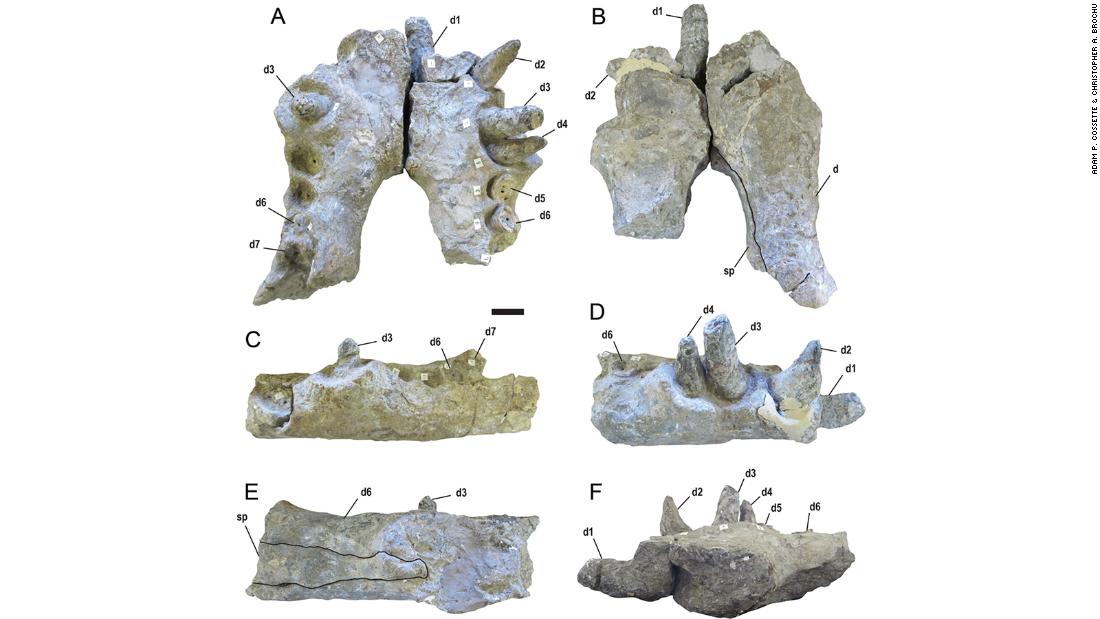
“Deinosuchus was a giant who had to terrorize dinosaurs who came to the edge of the water to drink,” said Dr. Cossette, co-author of the study, in a news release announcing the findings of the study. “Until now, the entire animal was unknown. These new specimens we examined revealed a bizarre, monstrous predator with teeth the size of bananas.”
The name Deinosuchus means “terrorist crocodiles”, but the authors of the study say they look more like alligators. However, the Deinosuchus snout was long and wide, and it had two mysterious holes at the tip of its snout, which distinguished it from alligators and crocodiles.
There were at least three species of Deinosuchus, and they lived in western America from Montana to northern Mexico and along the Atlantic coastal plain from New Jersey to Mississippi, the researchers said.
The Deinosuchus was probably the largest predator in its ecosystem, heavier than even the largest predatory dinosaurs that lived in the same period. Researchers discovered bite marks on everything from dinosaur bones to turtles.
Fortunately, these “terror crocodiles” lived between 75 and 82 million years ago.
“It was a strange animal,” Professor Christopher Brochu, co-author of the study, said in the news release. “It shows that crocodiles are not ‘living fossils’ that have not changed since the age of dinosaurs. They have evolved just as dynamically as any other group.”
It is unknown what happened to the Deinosuchus and how they became extinct, because the authors of the study found that they disappeared before the main mass extinctions were at the end of the age of dinosaurs.
.